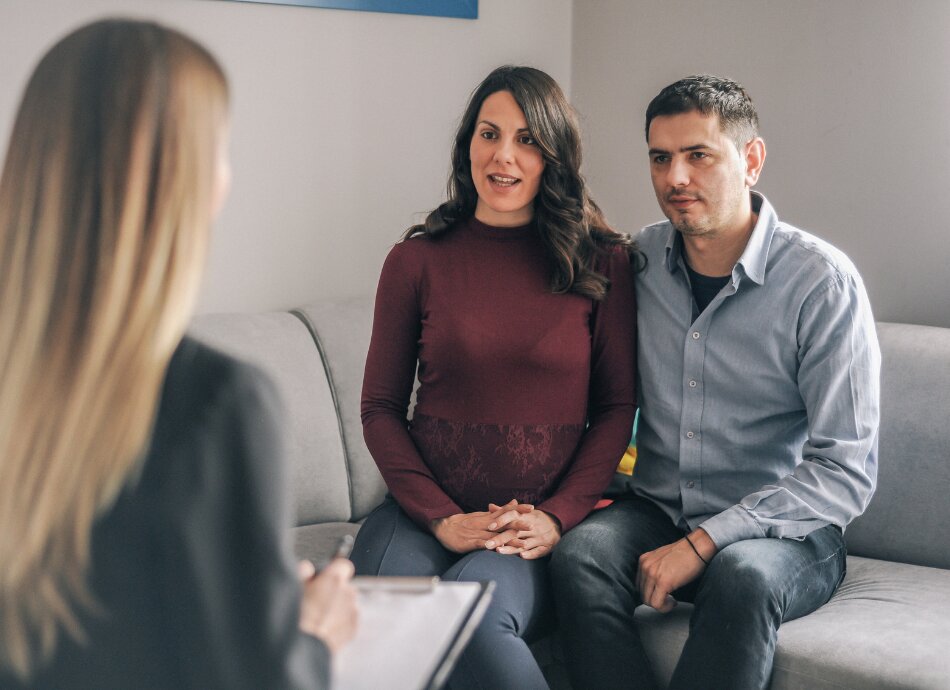You can now add Healthify as a preferred source on Google. Click here to see us when you search Google.
Health improvement practitioner
Also known as wellness advisor
Key points about health improvement practitioners (HIPs)
- A health improvement practitioner is a registered health practitioner.
- HIPs provide support for people with concerns about mental health, addiction, long-term conditions and general wellbeing.
- They're based in general practice and provide brief interventions to improve wellbeing.
- This is a free service.

A model of care currently being established in Aotearoa New Zealand includes health improvement practitioners (HIPs), health coaches and community support for people with concerns around mental health and wellbeing or addiction. The model (Te Tumu Waiora(external link)) is based in primary care meaning that HIPs can provide on-the-spot support for you at the same place you see your general practice team.
A health improvement practitioner (HIP) is a registered health professional. All HIPs are qualified with at least a degree in one of a range of disciplines:
- Psychology.
- Psychotherapy.
- Mental health nursing.
- Social work.
- Occupational therapy.
- DAPAANZ registered counsellor.
They also have experience in promoting emotional and physical wellbeing.
Video: What is a health improvement practitioner?
This video may take a few moments to load.
(Listening to Families, NZ, 2023)
A health improvement practitioner can see people of all ages and at all stages of their lives. They work with you to improve your overall wellbeing by providing support and follow-up for any physical, spiritual, social, or mental issues or concerns. Things often discussed include:
- sleep problems
- chronic pain
- anxiety and stress
- identity issues including cultural, sexual and gender
- improving social issues (parenting, relationships, loneliness, domestic violence)
- addiction concerns.
But HIPs are not limited to working in specific areas, they're generalists and will work with anyone about anything.
The health improvement practitioner is part of the general practice team, so they usually work in a GP clinic or medical centre. Being based in a GP clinic means there are no barriers to who can see them, as long as you're enrolled in the practice. Appointments are available every day. Half of the day is for booked appointments and half is for casual appointments to allow for same-day referrals and walk-ins.
Seeing a HIP is FREE if you are registered with the practice. You can be referred by your GP or nurse or you can ask to see them yourself. They may be available to see before or after your booked GP or nurse appointment.
A typical brief intervention consultation with a health improvement practitioner will take 15-30 minutes. It includes asking some questions to find out what you would like to work on that day that would be the most helpful.
This may include problem solving, planning, referrals or education. All patients leave with a wellbeing plan. Some people get what they need in one session, but you can return for follow-up sessions or to work on something new.
Because the aim of the HIP role is to help as many people as possible, the brief intervention format is not designed to provide long-term therapy, trauma therapy or counselling. A brief intervention focusses on the present moment with the aim of providing you with some skills, knowledge or insight to support your goals, values in life and physical and mental wellbeing.
HIPs can support patients to contact other services or find supports, manage change, advocate, research and build relationships.
A HIP may also support the personal and professional development of the practice team they work with. Through this, other general practice team members can develop further skills in providing mental wellbeing and addiction support for their patients.
Following their primary qualification, as described earlier, a health improvement practitioner will need to complete specialist training through Te Pou(external link) – a not-for-profit national centre for mental health, addiction and disability in Aotearoa New Zealand. Training is provided in several stages and includes ongoing coaching and mentoring once the HIP is working in their role.
Health improvement practitioners in New Zealand(external link) Te Pou, NZ
Integrated Primary Mental Health and Addiction service (IPMHA)(external link) Health New Zealand | Te Whatu Ora
Te Tumu Waiora(external link) NZ
Video: Integrated Primary Mental Health and Addiction Services in General Practice
This video may take a few moments to load.
(Ministry of Health - Manatū Hauora, NZ, 2021)
References
- Health improvement practitioners in New Zealand(external link) Te Pou, NZ
- Integrated Primary Mental Health and Addiction service (IPMHA)(external link) Health New Zealand | Te Whatu Ora
Credits: Leana Clark, HIP, Mt Wellington Family Health Centre
Reviewed by: Andy Creighton, Team Leader for Access and Choice at Tu Ora and HIP trainer; Healthify editorial team. Healthify is brought to you by Health Navigator Charitable Trust.
Last reviewed:
Page last updated:





